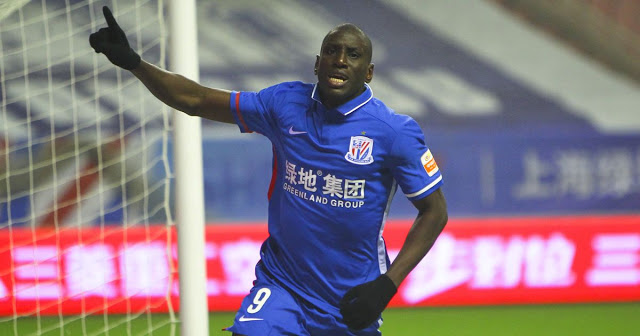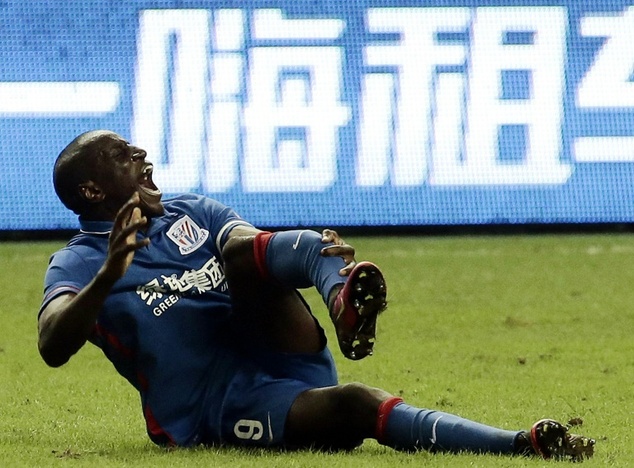Jackson Martinez’s £31m transfer from Atletico Madrid to Guangzhou Evergrande captured the imagination this week as the Colombian became just the latest big-name player to switch to the Chinese Super League.
There is already speculation that Chelsea captain John Terry could sign a lucrative contract in China too, having suggested that his current club will not be offering him a new deal.
Terry would be linking up with former Blues team-mate Ramires, who made a £25m move of his own to Jiangsu Suning last month.
But it’s the transfer of Martinez, a 29-year-old first-team regular at one of Europe’s strongest sides that’s the real reminder that China could soon become a haven for stars in their prime as well.
Evergrande had sold Elkeson to Shanghai SIPG prior to Martinez’s arrival and with Gervinho joining Hebei China Fortune, China has accounted for four of the five biggest transfers this winter.
The expansion has been rapid with the television rights for the next five years of the Chinese Super League costing £830m, more than 30 times the previous sum.
While the heavily regulated world of Major League Soccer restricts the likelihood of such excesses, there are no such obvious impediments in the way for the Chinese Super League.
It seems that the prospect of a new market emerging to compete with Europe’s biggest league is one to be taken seriously.

Chris Atkins is a Chinese football expert based in Guangzhou, as well as a player representative and registered intermediary for RWMG Sports. Here’s his take on the changes in China…
What has changed in China and why?
The government is keen to establish a more balanced economy based upon more than just manufacturing, with sports and entertainment industries seen as areas for investment. In China, companies are reliant on good relationships with the authorities and therefore are often inclined to help with initiatives seen as in the national interest.
What companies have also seen from the success of Guangzhou Evergrande is the amount of brand recognition that can be gained from football, allowing diversification. With many of those involved from the slowing real estate sector, that is an important benefit. The overall idea is to build a footballing product that puts China on the world map.
What’s the standard like?
The top end of the division is as good as it gets in Asia, with four or five clubs now at a pretty good standard and Guangzhou Evergrande having won the AFC Champions League twice in the past three years.
Obviously the league is still far off the levels of Europe’s top leagues, but it has improved dramatically in the past five years and should continue to do so. However, the big task will be raising the standard of the Chinese players across the board with the majority of better players now at only three or four sides.
Are there a lot of clubs capable of spending big now? Which ones?
Every year the number of clubs capable of making big-money additions seems to increase as we are seeing more and more clubs taken over by big enterprises. Even the second division now is starting to see increased investment and the likes of Jadson, Luis Fabiano and Zvjezdan Misimovic will line up in that league this year.
The top spending clubs capable of attracting top players are probably Evergrande, Shanghai SIPG, Jiangsu Suning, Hebei China Fortune, Shandong Luneng and Beijing Guoan.
How is the influx affecting your clients? Is the money going up across the board?
Pretty much. The need to spend more to stay competitive is being felt at all levels. While at the very bottom of the second division, salaries are still not increasing too much (around $200k net per year), a number of clubs who were spending those levels last year have raised their budget substantially for this season.
Is this a fad or the start of something big?
This is the key question. However, while current levels of spending may not be sustained I think the general push in the direction of sports investment will continue for some time. Much will depend on China’s economic growth in the years ahead and particularly the health of the housing market.
For the time being, expect further Chinese encroachment into European clubs and also further investment in players for the Chinese Super League.



COMMENTS